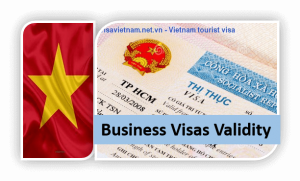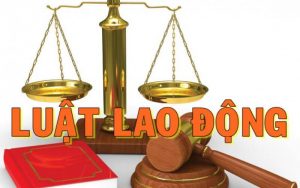Education system in Vietnam is a state-run system of public and private education run by the Ministry of Education and Training and Vietnam education ranking stands as No 51 in the world. Vietnam education system overview is that it is divided into five levels: preschool, primary school, secondary school, high school, and higher education. To talk about the school education system in Vietnam the formal education consists of twelve years of basic education. Basic Vietnam school system consists of five years of primary education, four years of intermediate education, and three years of secondary education. The majority of basic education students are enrolled on a half-day basis. The main education goal in Vietnam is “improving people’s general knowledge, training quality human resources, and nurturing and fostering talent.”
Vietnam is known for its curriculum that is deemed highly competitive. Secondary education is one of the most significant social issues in the country: designated schools known as “Specialised High Schools” offer additional extensive courses, are generally regarded as prestigious, and demand high entrance examination test scores. Higher education is seen as fundamental in Vietnam. Entrance to university is determined through the National High School Graduation Examination (NHSGE) test. The higher the entrance test score, the more highly regarded the institution will be.
Plans on expansion of the Vietnam education system, as currently experiencing a high GDP growth rate, so in 2012, the national budget for education was 6.3% higher then their initial plans and from 2012 till now more budget has been approved for the education system.
Types of education system in Vietnam
Regarding ownership, as prescribed in Article 44 of Vietnam’s Education Law, there are four types of education system:
- Public education system: established and monitored by the state. The state also nominates their administrators and decides staff quota. The state invests in infrastructure and allocates funding for their regular spending tasks.
- Semi-public education system: set up by the State on the basis of mobilizing organizations and individuals in the society to jointly invest in infrastructure.
- People-founded education system: Social or economic organizations apply for permission from the State to set up an institution with non-State budget capital.
- Private education system: Individuals or groups of individuals apply for permission from the State to set up and invest in the institution by themselves.
The semi-public, people-founded and private education system are referred to collectively as the non-public education system.
School grades
In the Vietnam school system, a schooling year is divided into two semesters: the first begins in late August and ends in December, while the second begins right after the first, which is about late January and lasts until the end of May.
Pre-primary education is not compulsory and tends to be popular in major cities such as Hanoi, Ho Chi Minh City, Da Nang, Hai Phong, Can Tho and Vung Tau.
Types of higher education institutions
Vietnamese Government decree (decree 43/2000/ND-CP, dated August 30, 2000) identified three types of higher education institutions:
- “Đại học” (university), which is a multidisciplinary institution offering fields of study and which has research capacities. Five major multidisciplinary universities in Vietnam are Vietnam National University in Ha Noi; Vietnam National University in Ho Chi Minh City; Huế University; University of Da Nang; and Can Tho University.
- “Trường Đại học” (senior college), which is more narrowly focused in its curriculum, sometimes on a single study area.
- “Học viện” (institute), which is also narrowly focused in terms of study area but which may have a specialized research capacity.
In addition, there are junior college or community colleges, professional secondary schools, and vocational schools which offer degrees or certificates.
The Vietnam education system had 163 universities (including senior colleges and institutes) and 223 junior colleges, in which 50 senior colleges and 30 junior colleges are non-public.
The presence of international universities are increasing. Universities such as PSB International College, RMIT, Eastern International University and University of Hawaii offer degrees in fields such as business, English as a Second Language and Information Technology. Running an international education system in Vietnam is challenging. Quality control and affordability are key issues, as well as red tape.
Higher education qualifications
- Associate Degree (Vietnamese: Cao đẳng): a three-year program delivered by junior colleges and by some universities as additional training programs.
- Bachelor’s degree (Vietnamese: Cử nhân): a four- to six-year program — six years for students studying medical and dental sciences; five years for students of industrial engineering; and four years for the majority of other undergraduate degrees such as Social Sciences. Graduates receive degrees with a title corresponding to their field of study such as bachelor (cử nhân), engineer (kỹ sư), medical doctor (bác sĩ), or lawyer (luật sư), etc.
Most of Vietnam’s universities also offer master’s (two years) and Doctor of Philosophy (four years) degrees.
Details about Vietnamese higher education system are as below:





English as a Second Language is taken as an extra-curricular activities
Private language centers offering English as a Second Language are in high demand in the larger cities of Ha Noi and Ho Chi Minh City.
The country has implemented OECD guidelines to the education sector with respect to English language skills of high school and university graduates. This means that for high school graduates to apply for university entry, overseas study (high school or university), or graduate from an undergraduate university course, individuals must achieve an internationally recognised and standardised test of English (IELTS, TOEIC, TOEFL, etc., ).
We hope that this article was helpful in your research related to Vietnam and if you need an in-depth research this is HOW GPO CAN ASSIST:
We at GPO can do market research for you, as you are still considering for FDI in Vietnam. We can also provide our HR Outsourcing service like hiring and managing an professional freelancer for generation of revenue even before you start your investment process for Vietnam and if everything goes as per your expectations we can introduce an business legal partner for getting your business registered in Vietnam and then offer our core service of been your HR business partner in managing your daily HR activities, as we are an HR business consultancy firm in Vietnam. So, please do share your contact details with us as per the below: gpo.vn
Top















